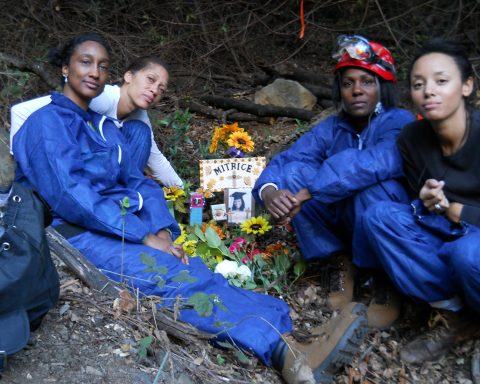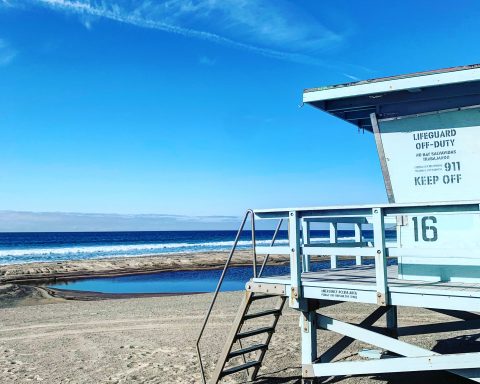Press Release submitted by Frank Angel
The court of appeal reversed in part the trial court’s judgment against the Malibu Township Council. The court agreed with the Malibu Township Council that the trial court erred when it dismissed our claims for a judicial declaration of Brown Act violations,which arose out of a secret closed session of the city council on December 10, 2012. This closed session took place 3 days before former council member House and La Monte secretly met with the Santa Monica Mountains Conservancy’s Edmiston to propose the Malibu Bluffs-Charmlee parkland swap.
The closed session was related to the swap. When the council met in closed session on 12/10/2012, the 12/13/2012 meeting with Edmiston had already been set, and council member Laura Rosenthal had received an email from former city manager Jim Thorsen’s secretary days before 12/10/2012, notifying her of that meeting. At the 12/10/2012 closed session, the city council discussed and approved an attorney fee settlement with the SMMC in its then concluded Public Works Project lawsuit (aka the “Override” lawsuit) against the Coastal Commission and the SMMC. (The city was entitled to reimbursement of the fees it had paid city attorney Christi Hogin in that suit because the city had prevailed in it.) That suit challenged the Coastal Commission’s approval of the SMMC’s public works project, aka as the SMMC’s Malibu Parks Enhancement Plan. By the fee settlement, the city council accepted $175,000 in attorney fees from the SMMC.
However, in the 12/10/2012 closed session the council further agreed, in return for payment to the city of a $200,000 penalty to allow the SMMC to resubmit a new public works plan to the Coastal Commission, under the Coastal Act’s override provision, the very provision the city council fought tooth and nail for years in the Public Works Project Lawsuit, and as to which it received a favorable appellate opinion (in May 2012). That opinion held that the SMMC may not use the Coastal Act’s override provision and bypass the city for approval of the SMMC’s Malibu parks plan.
In the Malibu Township Council Brown Act lawsuit, we argued that the council’s secret action in giving Edmiston the right to go back to the Coastal Commission and seek direct Coastal Commission approval for a new public works plan for the SMMC’s Malibu parks holdings (if he pays the $200,000 price), and thus again avoid city review and approval (local control) makes no sense. No sense . . . unless the swap was part of the $200,000 payment calculation in the 12/10/2017 closed session, and the city ends up owning the Malibu Bluffs.
Once the city owns the Bluffs, indeed, the SMMC’s using the override provision won’t affect the Bluffs (or the Malibu Road neighborhood below) any longer since the council may then propose the development on the Bluffs it wants, and no longer needs the appellate opinion it secured in May 2012 to assert local control to stop campgrounds on the Bluffs, or trails to the beach from these campgrounds — features of the SMMC’s Parks Plan that were heavily opposed by the city council and politically connected Malibu Road locals, including former council member Sharon Barofsky.
These circumstances and aspects of the secret settlement were not lost on the court of appeal in our case. As regards the 12/10/2012 closed session, the court held that the trial court erroneously dismissed our claims that:
*The city council violated the Brown Act by failing to disclose the 12/10/2012 closed session item on the council’s posted meeting agenda.
*The city council violated the Brown Act by failing to later report and disclose in open session the fee settlement it approved in the 12/10/2012 closed session. (The video shows city attorney Christi Hogin saying “took” as in “took action” and then taking it back, and claiming the council took no action although it had just approved the secret settlement).
*The council had no right to discuss the Public Works Project Lawsuit in closed session in the first place. Under the Brown Act, a city council can go into closed session to discuss with its attorney pending litigation when discussion in open session concerning “would prejudice the position of the local agency in the litigation.” Discussion and approval in open session of a fee settlement could not prejudice the position of the city in the Public Works Project Lawsuit; the city had already won that suit against the SMMC months before the 12/10/2012 closed session.
The court of appeal seemed to have as much difficulty as MTC to find justification for discussing and accepting a fee settlement in closed session! These three issues remain to be tried on remand, beginning with depositions.
True, on the question of whether prior to the January 14, 2013 open meeting on the parkland swap the city council violated the open meeting requirement, the court answered “no.” That answer raises significant legal issues of first impression under a key 2008 amendment to the Brown Act (sponsored by the California Newspaper Publishers Assn.) which figured prominently in our briefs, but which the court of appeal unfortunately overlooked.
By this 2008 Brown Act amendment, members of the city council or other city officials may not communicate “the comments or position” on an item of public business to “any other member or members” of the city council. (Gov. Code section 54952.2, subd. (b)(2).)
The court’s failure to consider this amendment is odd because the court agreed with the Malibu Township Council that when days after House and La Monte sealed the Swap deal, Rosenthal emailed them to tell them that the swap was a “brilliant idea” and praise them for their alleged “talent” as negotiators, she actually communicated her support for the swap. Rosenthal used private email addresses, completely bypassing city email servers. In the court’s own words, “a reasonable inference may be drawn [from Rosenthal’s secret email] that she will support [the swap].” So Rosenthal’s infamous December 24, 2012 support-the-swap email clearly violated the Brown Act, as amended in 2008.
Still, in the court’s view, the email didn’t represent “an express demonstration of her commitment to a position,” and House and La Monte didn’t respond specifically to her email. But the Brown Act, especially as amended in 2008, doesn’t care about “commitment to a position” or responses to prohibited communications. The intent of the law is to require council members to exchange positions in public, regardless of whether they retreat from them when they vote, and to allow the public to witness discussion at an open meeting.
UPDATE: A petition for re-hearing as a preliminary step to requesting Supreme Court review on the Brown Act Violation the MTC did not prevail on has been filed October 25th, 2017.





Follow Us